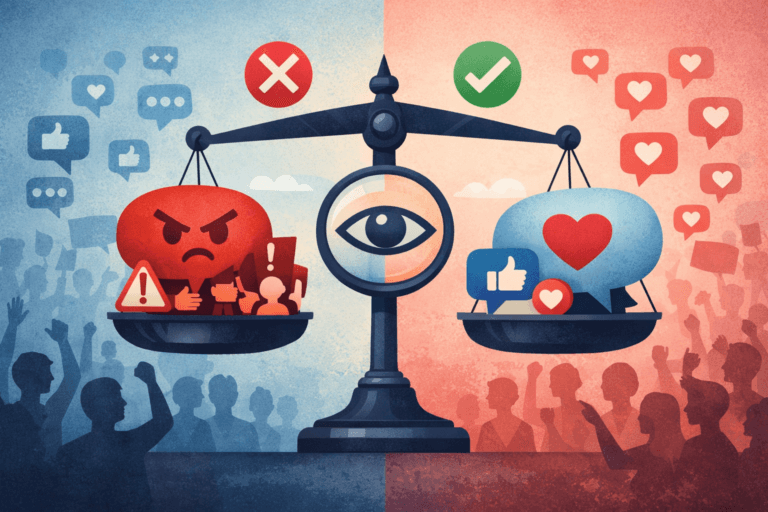
You show up. You stay loyal. You carry the weight no one sees — yet somehow, you still feel invisible in your own relationship.
If you’re the guy who does everything right but gets little in return, this article is for you. We’ll break down why good men get taken for granted, the subtle signs it’s happening to you, and what you can do to change it — without becoming bitter or walking away.
Let’s talk about what no one else will: being a good man shouldn’t feel like a punishment.
The Invisible Weight of Being a “Good Man”
You show up.
You handle the bills, fix the leak, check in with her mom, and still find time to hold her when she’s had a rough day.
You’re dependable, loyal, emotionally available — the kind of man women say they want.
But lately, something feels off.
You’re not thanked.
Your efforts go unnoticed.
Your voice gets talked over.
And the worst part? You’re starting to believe this is just how it is for men like you.
Welcome to the silent epidemic of good men being taken for granted in relationships — and the slow erosion of self-worth that comes with it.
In this article, we’ll break down why this happens, the psychological patterns behind it, how to spot the signs, and most importantly — how to change it without losing yourself or your relationship in the process.
Why Good Men Get Taken for Granted

1. Consistency Becomes Background Noise
The more consistently you show up, the easier it is to be overlooked.
Kindness becomes expected. Effort becomes assumed. And eventually, your emotional labor turns invisible.
This isn’t because your partner is cruel. It’s because we tend to normalize the things that remain constant — even when those things are keeping the relationship alive.
“When someone is always there, we stop noticing the weight they’re carrying.” — Jillian Turecki, relationship expert
2. You Were Taught to Earn Love Through Utility
Men are often conditioned to do more to feel worthy of love:
Provide. Protect. Show strength. Hide struggle.
This results in emotional suppression and a subtle belief that vulnerability = weakness. So when a man does everything “right” and still feels unappreciated, he rarely talks about it. He just withdraws quietly and painfully.
3. You Fell into the “Nice Guy” Trap
You don’t argue. You try to keep the peace. You say yes when you should say no.
But being agreeable isn’t the same as being respected.
When you abandon your own needs to meet someone else’s, you lose the emotional balance that intimacy needs to thrive.
And over time, “nice” becomes forgettable — not because you’re not worthy, but because you’ve trained your partner to expect your silence.
Signs You’re Being Taken for Granted

Still unsure if this is you? Here are some common red flags:
- You’re the one always planning, fixing, and initiating.
- Your opinions are dismissed or minimized.
- You give compliments and effort — but receive little in return.
- Your emotional needs are met with indifference or discomfort.
- You’ve started to resent the relationship, but feel guilty for doing so.
According to a BetterHelp survey, over 60% of men in long-term relationships report feeling underappreciated — especially in the emotional realm.
The Psychology Behind It

1. Precarious Manhood
Sociologists Joseph Vandello and Jennifer Bosson coined the term “precarious manhood” — the idea that masculinity is a status that must constantly be earned and is easily lost.
In relationships, this means many men equate their worth with their usefulness — not their emotional presence.
So they do more. Provide more. Stay quiet more.
And ironically, this lack of emotional reciprocity slowly erodes their partner’s ability to see them beyond what they do.
2. The Provider Identity Backfires
Being the provider used to come with respect and admiration. But in modern relationships, many men find themselves working long hours, contributing emotionally, and still being criticized for not doing enough.
It’s exhausting.
It’s invisible.
And it’s unsustainable.
You can’t earn love through over-functioning.
You’ll just burn out.
3. Emotional Suppression Looks Like Disinterest
When you start shutting down, she thinks you’re cold.
When you stop initiating, she assumes you’ve lost interest.
But the truth is, you’re protecting yourself from feeling like a ghost in your own relationship.
How This Dynamic Damages the Relationship

Being taken for granted isn’t just unfair — it’s dangerous. Here’s how it slowly kills the connection:
- Resentment builds: You stop communicating your needs because you feel they won’t be met anyway.
- Attraction fades: Emotional distance replaces the spark. Resentment replaces desire.
- The “parent-child” dynamic forms: One gives, one takes — and the polarity dies.
- Exit strategies begin: Emotional or physical detachment, numbing, cheating, or checking out altogether.
What Good Men Can Do About It

If you’re reading this, chances are — you’re tired.
But don’t give up just yet. You don’t have to become cold or selfish to get the respect you deserve.
You just need to shift your standards.
Here’s how.
1. Set Boundaries Without Apology
Stop bending yourself out of shape to “keep the peace.”
If something doesn’t feel right, say it. Not in anger — but with clarity.
“Hey, I need to feel appreciated for what I do. I’m not asking for constant praise — just recognition that we’re in this together.”
Boundaries aren’t walls. They’re doors. You get to decide what gets in.
2. Reclaim Your Emotional Voice
If you feel like no one listens to you — ask yourself: Are you even speaking?
Don’t mask frustration as silence. Start naming your feelings:
- “I feel overlooked when I’m always giving and rarely acknowledged.”
- “It hurts to feel like I’m not needed emotionally, only functionally.”
Men have feelings. Say them out loud. Own them.
3. Create Emotional Standards
It’s not enough to be loyal, helpful, and steady. You also deserve
- To be asked, “How are you really doing?”
- To be loved for who you are, not just what you do.
- To feel safe expressing needs without being mocked or dismissed.
That’s not selfish. It’s healthy.
4. Build a Relationship Around Mutual Appreciation
Start a weekly gratitude check-in.
Practice love languages.
Leave notes. Celebrate effort.
It’s not cheesy — it’s essential.
Research from the Gottman Institute shows that couples who express appreciation weekly report 31% higher relationship satisfaction than those who don’t.
What Your Partner Needs to Understand

This isn’t about blame. It’s about awareness.
Good men may not ask for much — but that doesn’t mean they need nothing.
If you’re a woman reading this, ask yourself:
- “Do I genuinely see and affirm my partner — or have I taken his consistency for granted?”
- “When’s the last time I thanked him without prompting?”
Start small:
- “I noticed how much effort you put into today. I really appreciate it.”
- “You’ve been steady through my ups and downs, and that means a lot.”
It’s not the grand gestures. It’s the daily acknowledgment of his emotional presence that keeps him showing up.
From Resentment to Respect
Being a “good man” shouldn’t feel like a punishment.
It shouldn’t mean being quiet, selfless, and emotionally starved just to keep a relationship together.
You deserve appreciation, reciprocity, and respect.
Not because you’re perfect.
Not because you demand it.
But because you’ve earned it — and you’re human.
So speak your truth.
Set your line.
And remember: you don’t need to become harder. You just need to be clearer.
Take Action:
If this article hit home, don’t keep it to yourself.
Share it with someone who needs to hear it.
And if you’re a man who’s been showing up silently, consistently — but feeling unseen — it’s time to stop shrinking.
You’re not asking for too much.
You’re just asking to matter.
👉If this resonated, you’ll want more.
My FREE Newsletter The Honest Masculine is my weekly newsletter — no fluff, no filters. Just raw truths about breakups, masculinity, fatherhood, and the quiet battles men face alone.
It’s for the man who’s done pretending.




[…] the guy who does all the “right” things. He listens. He’s patient. He validates. He splits bills, picks up groceries, takes on […]